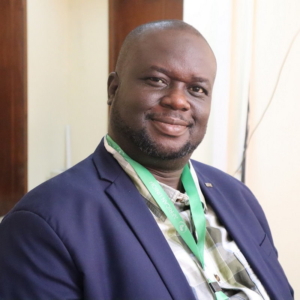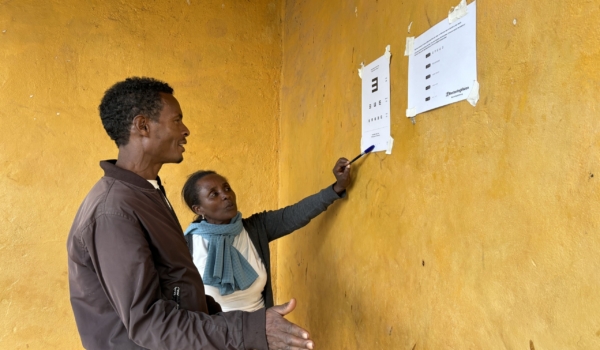
“Last Mile Health’s deep experience in delivering community health, supporting governments to build community health systems, and their ability to rapidly adapt this knowhow across regions makes them an invaluable partner to the Africa CDC.” — Dr. Mohammed Abdulaziz-Head of Division, Disease Control and Prevention, Africa CDC
Armed with the evidence from nearly 15 years of delivering community-based primary healthcare in Liberia, we know that trained, paid, supervised, and supplied community and frontline health workers are foundational to resilient health systems. In 2020, Last Mile Health partnered with Africa CDC to strengthen national community health workforces across the African continent to respond to the pandemic and advance pandemic preparedness.
A specialized technical institution of the African Union, Africa CDC was launched in January 2017 to support public health initiatives of member states and strengthen the capacity of their public health institutions to detect, prevent, control, and respond quickly and effectively to disease threats. The institution has the convening power to mobilize key stakeholders globally to adopt best practices, direct financial and other resources, and increase political will among governments – including in the five countries where we work – to realize the potential of high-performing national community health workforces.
Our Partnership
Together, we are working to guide governments, implementing partners, and aid organizations to build stronger health systems with community health workers that are trained, paid, supervised, and supplied. We are doing this through:
- Technical Advising for PACT Initiative: Launched during pandemic, the Africa CDC’s Partnership to Accelerate COVID-19 Testing (PACT) initiative is deploying community health workers to “test, trace, and treat” COVID-19 across the continent. In collaboration with Africa CDC, we designed key aspects of this initiative related to community health, implementation, and evaluation. We are now partnering with Africa CDC to bridge this initiative from emergency response to a long-term initiative that can strengthen the capacities of the health workforce in member countries, with a total of 18,154 community health workers already deployed in 27 member states. Of note, we shared lessons from the investment case for Liberia’s National Community Health Assistant Program and contributed to guidance which has informed Africa’s CDC’s approach to financing and sustainability.
- Guidance to Member States via Learning Exchanges: Africa CDC’s mandate is to connect member states with the best knowledge and tools to build strong primary health systems. One way we contributed to these efforts was by organizing a virtual learning event on community health systems integration and financing. The event brought together over 800 participants, including representatives from Ministries of Health, implementing partners, and community representatives, and included recommendations for member states to strengthen and integrate community health systems, invest in compensation of health workers, and advocate for increased domestic and external financing of community health systems. We also contributed directly to guidance in partnership with Africa CDC, like drafting joint guidance on the role of CHWs in COVID-19 vaccine roll-out.
- Advocacy and Convening: Africa CDC and Last Mile Health are collaborating to engage key decision-makers – including heads of state – to promote the importance of investing in strong community health systems and advocate for expanding access to COVID-19 vaccines. Notable examples include helping coordinate a webinar series co-hosted by H.E. Ellen Johnson Sirleaf and Dr. John Nkengasong, Africa CDC Director, to underscore the immediate role community health workers have in the health, economic, and social recovery of Africa. These key policy recommendations were then published in a joint op-ed on the role of community health workers in Africa’s COVID-19 response.
Looking to the future
Africa CDC is in the process of establishing a new community health unit, and is currently working on community health strategy to guide its work between 2022-2026. We are honored to contribute to the strategy through our participation in the Community Health Technical Working Group, where we chair a subcommittee on Financing and Sustainability. Participation provides us with an opportunity to share what we’re learning from our programmatic activities in the five countries in which we work, as well as learn from the successes and challenges of other member states and their partners. We will continue to jointly organize convenings globally and regionally with Africa Heads of State and Health Ministers to strengthen momentum for national investment in professionalized community health workers as the trusted first line of defense against future threats. These efforts remain crucial toward our goal to catalyze exemplar national community health workforces that leave no patient out of reach.




